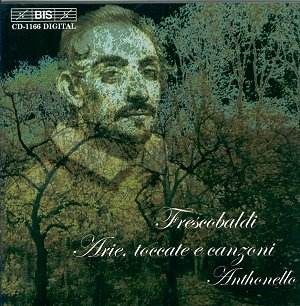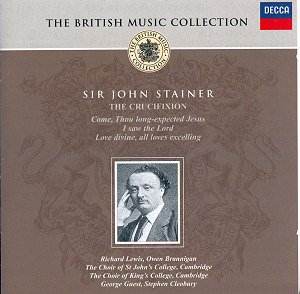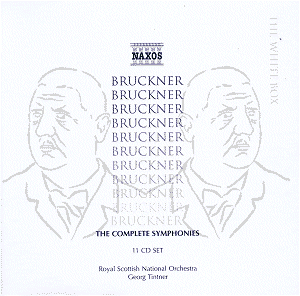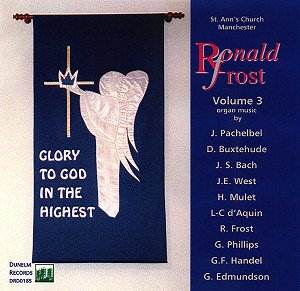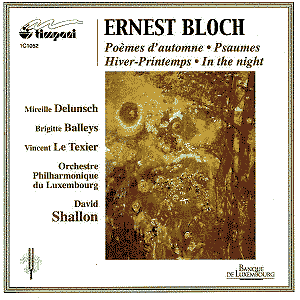 Composer: Ernest Bloch
Composer: Ernest Bloch
Works: Hiver-Printemps, Poèmes d’Automne, In the Night, 2 Psaumes, Psaume 22
Performers: Mireille Delunsch (soprano), Brigitte Balleys (mezzo-soprano), Vincent Le Texier (baritone), Orchestre Philharmonique de Luxembourg/David Shallon
Recording: Recorded at Luxembourg Conservatoire, September 1999
Label: Timpani
Ernest Bloch’s music often reflects the tumultuous journey of a composer grappling with his identity, art, and the world surrounding him. The present disc from Timpani showcases a selection of Bloch’s early works, composed during a time when he was establishing his voice amid the avant-garde movements of the early 20th century. While Bloch is perhaps best known for his “Hebraic rhapsody,” Schelomo, and the Violin Concerto, this collection allows listeners to delve deeper into the rich tapestry of his lesser-known compositions, revealing the emotional depth and technical prowess inherent in his music.
The orchestral diptych Hiver-Printemps, dating back to 1904-05, serves as a perfect introduction to this collection. The work’s Impressionistic qualities resonate strongly, with Bloch employing a fragmented melodic line reminiscent of Debussy’s style. The orchestration is both delicate and vibrant, with instruments weaving in and out of the texture, creating a kaleidoscopic soundscape that evokes the contrasting seasons. David Shallon’s direction allows the Luxembourg Philharmonic to navigate this intricate material with sensitivity and flair, bringing forth the lush string textures and nuanced woodwind colorings that Bloch so masterfully crafted.
Bloch’s Poèmes d’Automne, inspired by the poetry of Beatrix Rodes, represents a personal crisis transformed into musical expression. The settings, while perhaps lyrically naïve, are elevated by Bloch’s orchestral imagination, which blends the sumptuousness of Strauss with Ravel’s deft orchestral color. The performers, particularly Mireille Delunsch, imbue the final movement, Invocation, with a passionate intensity that is both haunting and luminous, as the orchestration builds to a resplendent climax. This specific moment highlights Bloch’s capacity for vivid word-painting—a quality that is also markedly present in the settings of Psalms 114 and 137, where the emotional gravitas of the text is mirrored by the fervent musical language.
The recording quality is commendable, with a spacious acoustic that respects the intricate interplay between the soloists and the orchestra. The balance is well-judged, allowing for the solo voices to soar above the orchestral fabric without losing the richness of the ensemble sound. The engineering captures the nuances of Bloch’s orchestration, from the warmth of the strings to the clarity of the woodwinds, providing a listening experience that is both immersive and enlightening. The performers display a commendable command of the material, executing the demanding vocal lines with assurance and expressive nuance.
What makes this disc particularly valuable is its ability to flesh out Bloch’s artistic narrative during a formative period in his career. While the influences of contemporaries like Debussy and Ravel are perceptible, Bloch’s distinctive voice remains resolute. He sought not merely to reflect the currents of his time but to articulate a personal vision—a desire echoed in his declaration of art as “an expression of life.” This recording not only serves as an introduction to Bloch’s lesser-known works but also stands as a testament to his enduring legacy as a composer who synthesized influences into a deeply personal and emotive language.
This release, thus, is a noteworthy addition to the discography of Bloch’s works, illuminating his craft and offering an engaging exploration of a composer whose music deserves to be more widely known. The combination of high-caliber performance, thoughtful interpretation, and excellent sound engineering results in an enriching listening experience.
